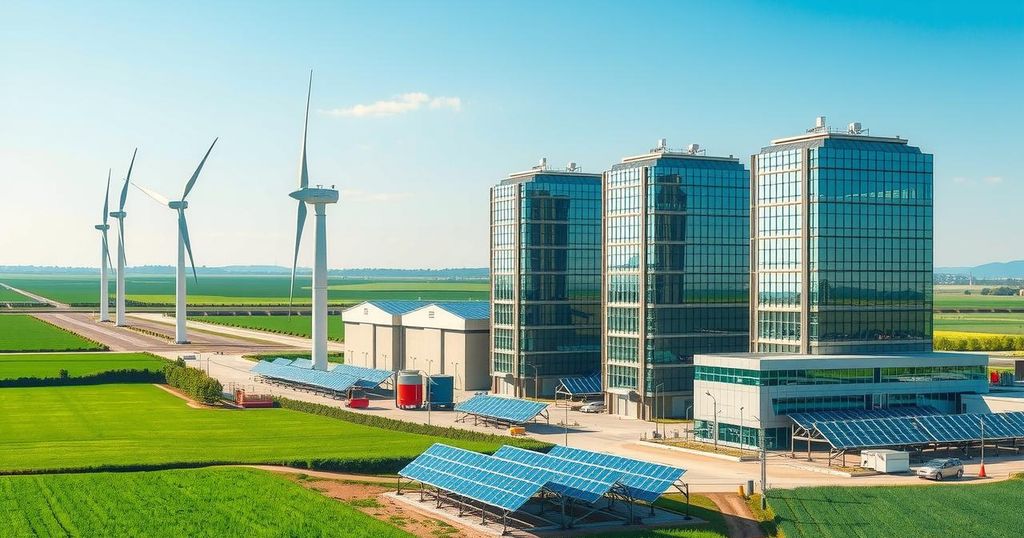Economic Messaging in Clean Energy Advocacy

The article examines the shift in clean energy advocacy from environmental to economic messaging, emphasizing job creation and profitability. With the influence of the Trump administration, leaders are focusing on financial opportunities within the clean energy sector to engage conservative audiences. This strategy seeks to align self-interest with the larger goal of addressing climate change.
In the contemporary discourse of clean energy, the narrative has shifted to focus on economic benefits rather than solely environmental concerns. Following President Donald Trump’s administration and its emphasis on traditional energy sources, advocates for clean energy have been recalibrating their strategies to highlight job creation and financial opportunities. During a recent lobbying event, representatives from various clean energy sectors showcased their contributions to a thriving American energy economy, embodying the phrase “American energy dominance” popularized by Trump.
U.N. Climate Executive Secretary Simon Stiell emphasized the impressive $2 trillion investment flowing into clean energy projects, stating that appealing to people’s self-interest can be more effective than purely moral appeals to climate action. This commentary reflects a broader desire to present clean energy as a profitable sector that also addresses climate challenges, appealing to a more conservative audience.
Former U.S. Representative Bob Inglis articulated that focusing on financial gains from clean energy can resonate with conservative audiences, as demonstrated by successful enterprises like Elon Musk’s ventures in electric vehicles and solar technology. Inglis highlighted the notion that profitability in clean energy does not undermine its value but enhances its appeal.
The conversation around job creation remains powerful, with industry leaders advocating to retain essential tax incentives to maintain global competitiveness. This shift in messaging aims to connect with legislators who may prioritize economic arguments over climate change urgency, making the case that environmental initiatives also foster economic growth.
Liz Beardsley from the U.S. Green Building Council reiterated that the economic lens is a critical aspect of their advocacy, as positive business outcomes from sustainable practices can drive broader acceptance. Additionally, Lisa Sachs from the Columbia Center on Sustainable Investment noted the importance of honesty in advocating for this economic transition, acknowledging that it is not solely the private sector’s responsibility to decarbonize the economy.
The dynamics of political leadership continue to influence energy discussions, as noted by Frank Maisano, who highlights the accessibility of key administration officials in pursuing energy interests. Joanna Depledge, a climate historian, pointed to the ineffectiveness of climate alarmism in the current political landscape, suggesting a pivot toward economically grounded messaging.
This article discusses the recent evolution of the clean energy narrative, highlighting a shift toward emphasizing economic benefits over environmental imperatives. With political climates shifting, particularly under the Trump administration, clean energy advocates have recognized the necessity to align their messaging with concepts of wealth generation and job creation. This strategic pivot is aimed at engaging a broader audience, particularly among conservatives who may be skeptical of climate action but motivated by self-interest and economic opportunity.
The key takeaway from this article is the evolving strategy of clean energy advocates to emphasize economic opportunities and job creation within the clean energy sector. By aligning their messages with self-interests and focusing on profitability, these leaders aim to engage a wider array of political stakeholders. While the challenge of climate change remains significant, presenting a compelling economic case may enhance support for clean energy initiatives in varying political landscapes.
Original Source: www.washingtonpost.com






